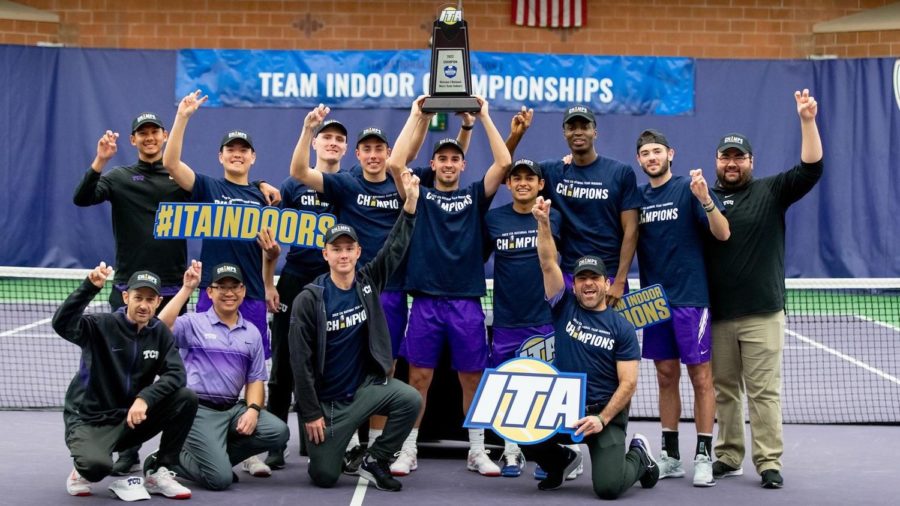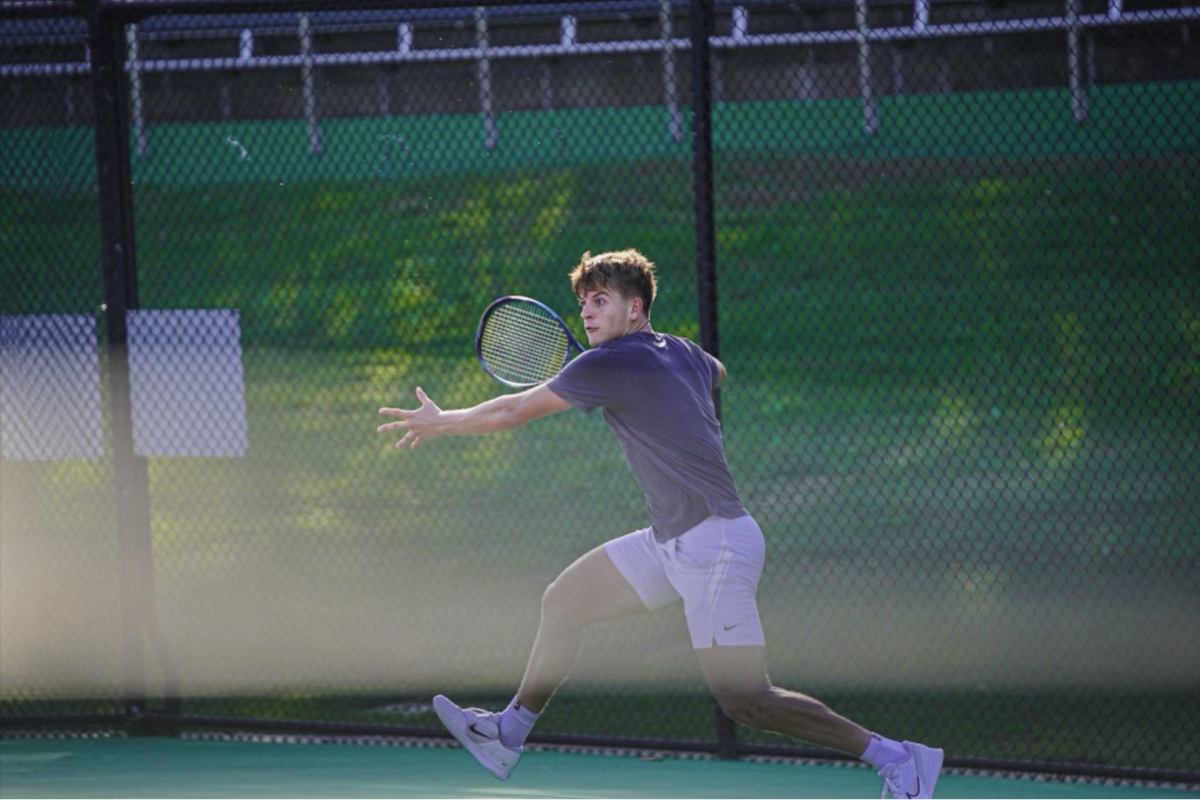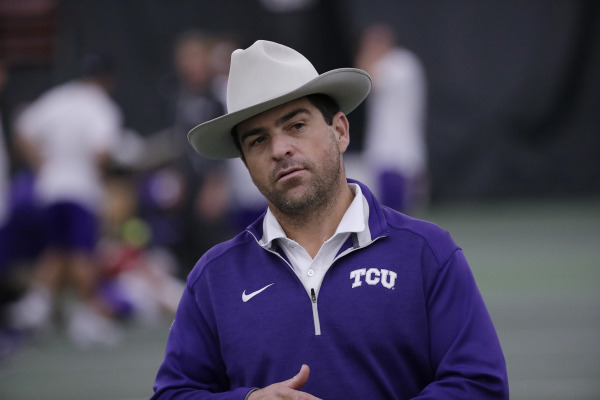In collegiate men’s tennis, six of the last seven points a team can earn in a match are decided in singles play, where six individuals from each team compete one-on-one in best-of-three set matches.
But the first point of every contest is determined when there are four players on the court, not two.
In doubles play, three pairs from each team face off in single-set action to see which team enters singles play with a 1-0 lead.
Singles and doubles tennis differ in many ways.
For example, players have more space to hit the ball in doubles, as they are allowed to use the doubles sidelines (the outside pair of vertical white lines connecting from one baseline to the other) rather than the singles sidelines (the inside pair of vertical lines).
However, unlike singles play, there are two players on one side of the court instead of one. So while teams are given a wider set of boundaries, players must be able to hit the ball over the net without striking their partners in the process.
Additionally, players must communicate effectively with their partners while knowing where and when they will be located on the court. This allows both players to excel where their partner may struggle, filling in the gaps and forming one cohesive unit.
TCU men’s tennis head coach David Roditi said the combination of fast-paced play and changes in spacing make doubles tennis a much different game than singles tennis.
“Momentum and energy plays a big part of it,” Roditi said. “It’s very quick points… The longest point in doubles is maybe six or seven hits, which could be an average singles point.”
Roditi also said the shortened match length makes it critical for teams to get out to a fast start.
“You got to be ready to go right from the very first point,” Roditi said. “You have less time to recover… There isn’t a lot of room for a slow start.”
The No. 6 Horned Frogs have won 11 of their last 12 matches. In those 11 victories, the Frogs clinched the doubles point nine times.
Furthermore, Roditi said a big reason for the Frogs’ late-season success has been their ability to earn the doubles point.
“I’m proud to say that we’ve been able to win the doubles point more often lately than in the beginning of the season,” Roditi said. “We were losing the doubles point earlier in the season and that was making it tough for us.”
TCU has two of the nation’s 30 best doubles teams. Seniors Nick Chappell andWill Stein are ranked 20th, while freshmen Trevor Johnson and Cameron Norrieare ranked 29th.
Johnson said he and Norrie play well together because their styles compliment one another.
“I like to move a lot at the net,” Johnson said. “His serve isn’t really fast but it moves a lot, so that gives me more time to move around the net… We’re both super aggressive returning, which helps because then the [opponents] are always on their toes.”
“We’re super good friends off the court so it’s just fun to be out there and know that no matter what, we’re still going to be good afterward.”
Likewise, Norrie said he and Johnson are a good fit because of their similar styles.
“I think we compliment each other well,” Norrie said. “We both make a lot of returns… On my lefty serve, I think Trevor’s very active at [the] net and he does a lot of work up there to put the ball away.”
“I like [playing with Trevor] because he moves a lot at the net and it’s really easy for me to hold my serve. All I have to do is hit my spot and he’ll be there to cover it.”
Norrie said communication and chemistry are essential to having success in doubles.
“It’s definitely really important because you got to know where your partner is going to go,” Norrie said.
Roditi also said both elements are critical in order to win in doubles.
“It’s all about communication and having that chemistry and that trust in each other” Roditi said. “You got to like each other, at least on the court…You’re working together.”






